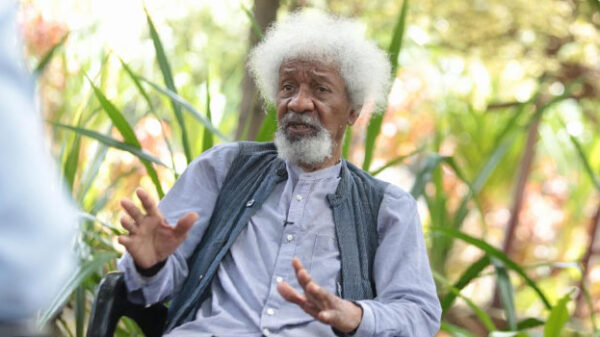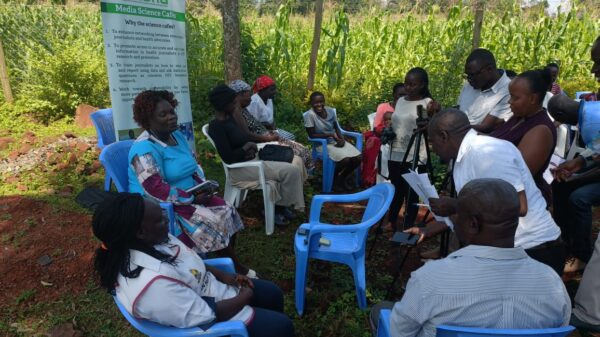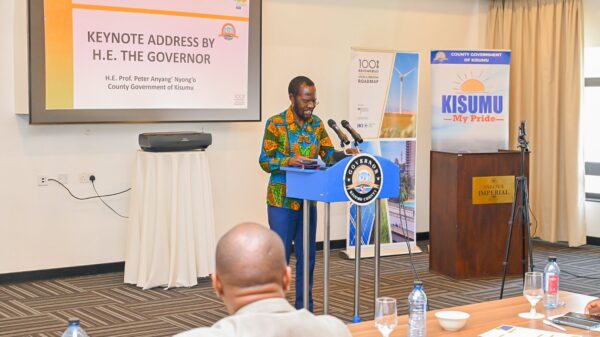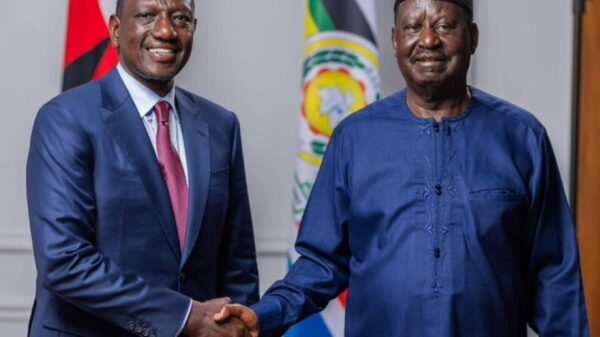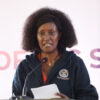
In the statement, Ruto called for caution in the use of fraudulent statistics urging the public to resist fictitious data sets and stage-managed findings/FILE
NAIROBI, Kenya, Aug 23 — Deputy President William Ruto has dismissed a corruption perception index by Ipsos listing him top at 33 per cent as politically instigated and faulty.
Through his Press Secretary David Mugonyi, Ruto termed the survey released Wednesday as a conflation of political rivalry and corruption perception to produce “distorted opinions in a libellous crusade by shadowy sponsors.”
Mugonyi linked the Ipsos report to a an ongoing campaign to amend the Constitution so as to bar Ruto from running for the presidency in the 2022 presidential election.
“At a time when people are so desperate that they want to amend the constitution to bar DP from running for presidency, it should not shock anyone that a survey like this would be concocted,” the statement released Wednesday evening read in part.
In the statement, Ruto called for caution in the use of fraudulent statistics urging the public to resist fictitious data sets and stage-managed findings.
“Good governance for national transformation relies on solid statistics,” he noted.
“We must be careful not to mislead Kenyans with faulty or fraudulent statistics, even for mundane purposes. We must resist a culture of cooked surveys, manipulated data and stage-managed findings,” he warned.
The Ipsos-funded study which was conducted between July 25 and August 2 with 2,016 respondents taking part in 45 counties listed Kirinyaga Governor Anne Waiguru second in the corruption perception index at 31 per cent, with former President Daniel arap Moi listed third at 17 per cent.
Waiguru vehemently dismissed the study vowing legal action against Ipsos.
Reacting to the opinion poll, Waiguru said anyone with evidence that she is corrupt should present it before State agencies tasked with the mandate of probing graft.
“I think they’re advancing a political agenda; there can be nothing other than that. If they have any evidence let them take it to the Directorate of Criminal Investigations or the Director of Public Prosecutions so that action can be taken!” she remarked while inspecting a development project in her county on Wednesday.
“I will say to Ipsos shame on you for pushing a political agenda! I have never been taken to court on corruption, instead I sued Raila Odinga for defaming me on corruption,” she added.
The Ipsos-funded poll however showed a rigid dichotomy between values held by respondents and their choice of leaders despite 87 per cent expressing reservations with the ability of corrupt individuals to provide good leadership.
“Most Kenyans consider that corrupt people cannot be good leaders yet most public figures associated currently or incorrectly with corruption scandals are elected officials with many achieving electoral success even after their names were linked to corruption,” Tom Wolf, senior research analyst at Ipsos noted.
“Perhaps this reflects one reality of democracy – that at least where elections are free and fair, the voting public gets the leaders they deserve,” he observed.
According to the study conducted in 45 counties between July 25 and August 2, eleven per cent of 2,016 respondents perceived President Uhuru Kenyatta as corrupt.
Former President Mwai Kibaki, Orange Democratic Movement party leader Raila Odinga, and ex-Nairobi Governor Evans Kidero also featured in the corruption perception index at five per cent each.
Odinga’s running mate in last year’s presidential election, Kalonzo Musyoka, Nairobi Governor Mike Sonko and his Busia counterpart Sospeter Ojaamong’ completed the top 10 list with a percentage point each.
According to the study, public awareness on corruption had risen significantly to stand at 81 per cent compared to 65 per cent before the 2017 presidential election.
Wolf however noted a disconnect between the top three reasons why some leaders were being seen as corrupt with most of the leaders perceived as most corrupt having no direct link to scandals listed as the most prominent.
“You can find at the top Governor Waiguru when we know she had nothing to do with a scandal that occurred since the 2017 election like we had asked the sample population,” he said.
The poll had a +/- 2.16 per cent sampling error with 95 degree of confidence.

